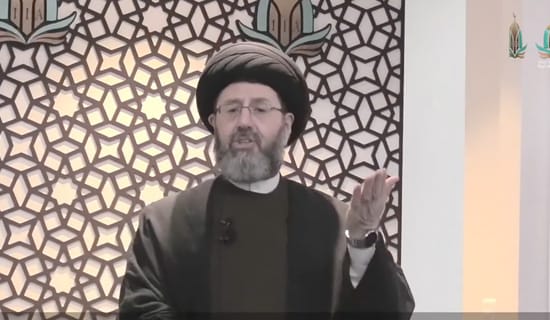
In an Iranian TV interview, IRGC Deputy Commander Hossein Salami said that after years of research, they had tested the use of a ballistic missile against a ship when he was IRGC airforce commander. "This missile demonstrated that we were one step closer to destroying an aircraft carrier," he said in the interview, which aired on IRINN on February 9, 2015.
Following are excerpts:
IRGC Deputy Commander Hossein Salami: We had to assume that we would need to destroy, sink, or take over a [U.S.] aircraft carrier. With the criterion for the development of our capabilities set by this component of the enemy's power, we had to seek solutions that would not merely match the power of the enemy, but would spell the end of the aircraft carrier in this world. We needed a formula that would resolve this equation.
We assumed that we would need to develop the capabilities for this. One of these capabilities was the use of cruise missiles – missiles launched from a vessel and missiles launched from the shore. After all, aircraft carriers are large targets. One of the weaknesses of our enemies is that they use large systems, which can be easily detected.
[...]
On the other hand, we considered the possibility that the enemy's anti-missile systems would intercept our cruise missiles. So we had to develop a complementary capability, which would guarantee the destruction of these aircraft carriers. At that point, Maj.-Gen. Hassan Tehrani Moghaddam came up with a very sophisticated idea: the use of ballistic missiles to destroy moving targets at sea. This is very complex technology. It is possible – just possible – that we are the only ones in the world to possess this technology.
[...]
This idea was researched in workshops and laboratories for years and years. About eight years ago, when I was the IRGC air force commander, we tested the use of a ballistic missile against a ship for the first time, after several failed attempts.
[...]
Using a telemetric system, we tracked the missile's movement, and the way it was locking on to the target. All the youngsters working on this – dozens of people – huddled together, their eyes glued to the TV screen. When the tracking was over, everybody held their breath, waiting to see whether they were witnessing a technological revolution. The missile kept getting closer and closer to the target. The target was getting bigger and bigger on the screen, until the missile hit a point very close to the target. Believe me, it was maybe a few meters, less than 10, from the target. This was considered extremely accurate for the technology of those days.
It was as if the entire group of people exploded... All the youngsters broke out in cheers, because we had accomplished such a great thing. This was a great step. This missile demonstrated that we were one step closer to destroying an aircraft carrier.
[...]
When I reported this to [Iranian Supreme Leader Ali Khamenei], he said: "Well, we are still a short distance away from total accuracy." The gap of a few meters had to be covered, in order to reach perfection. He set a new goal for us to aspire to.
He told me something very interesting. He said to me: "Our enemies do not abide by moral values, and therefore they do not require precision in their missile systems. If they hit population centers by mistake, when using nuclear weapons or missiles, they do not care. For us, precision is important. You must make sure that our missiles achieve absolute precision, so that if we want to hit a military center, and it is next to people's homes, the missile will hit only the military center."
[...]













